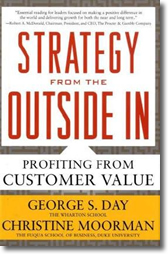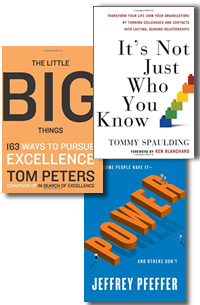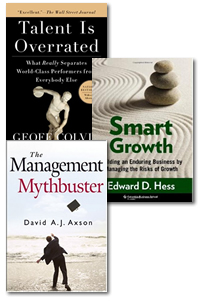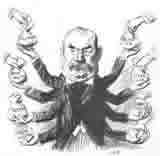Book Review: Strategy from the outside in
Tuesday, February 22nd, 2011
Day, George S. and Christine Moorman. Strategy from the outside in : profiting from customer value. McGraw-Hill Professional, 2010.
Fuqua faculty member Chris Moorman and co-author George Day argue that, over the long term, the most successful companies focus on creating and keeping their customers. When designing their corporate strategy, the best companies start with the market. All parts of the enterprise are focused on understanding the customer, solving customer problems and seeking out opportunities in the market. Market driven companies work to sustain and improve customer value.
Authors Day and Moorman introduce the concepts of inside-out and outside-in strategies. Many companies employ inside-out strategies, maximizing shareholder value or leveraging competitive advantage. By contrast, the most profitable companies use outside-in strategy, viewing the market through the customer’s eyes. These companies also invest in market intelligence to determine patterns in customer behavior, and to identify market opportunities. They take specific steps to create and reinforce customer value and profitability. These actions distinguish market leaders from ordinary companies and are the focus of the book.
Author Christine Moorman is the T. Austin Finch, Sr. Professor at the Fuqua School of Business, Duke University. Her teaching and research interests include marketing strategy, new products and consumer behavior. For more details, you can visit: http://www.strategyfromtheoutsidein.com/
© Reviewer: Meg Trauner & Ford Library – Fuqua School of Business.
All rights reserved.








